Expert Testimony on Interrogations and Eyewitness Memory Assignment
VerifiedAdded on 2022/10/02
|6
|1216
|367
Homework Assignment
AI Summary
This assignment delves into the realm of expert testimony within the field of psychology, specifically focusing on false confessions, interrogation techniques, and eyewitness memory. The document begins by defining and explaining the four types of false confessions, as outlined in the textbook, providing a foundational understanding of this critical topic. It then explores the Behavioral Analysis Interview (BAI) and its connection to false confessions, offering insights into how this method is used to differentiate between truthful and deceptive statements during interrogations. A significant portion of the assignment is dedicated to a case study, where the author assumes the role of an expert witness. They evaluate personal and situational risk factors, assess the reliability of a confession, and explain how they would present their findings to a jury. The assignment also examines the 'Mr. Big Sting' investigative procedure, discussing its workings and the rationale behind its inclusion in expert witness testimony. Furthermore, the document addresses the historical context, explaining why early judicial decisions barred expert testimony on eyewitness memory. Finally, it provides guidance on how an expert witness can handle situations where an eyewitness exhibits high confidence despite the presence of factors that may negatively affect the accuracy of their identification. The assignment draws from relevant academic sources to support its arguments and analysis.
1 out of 6
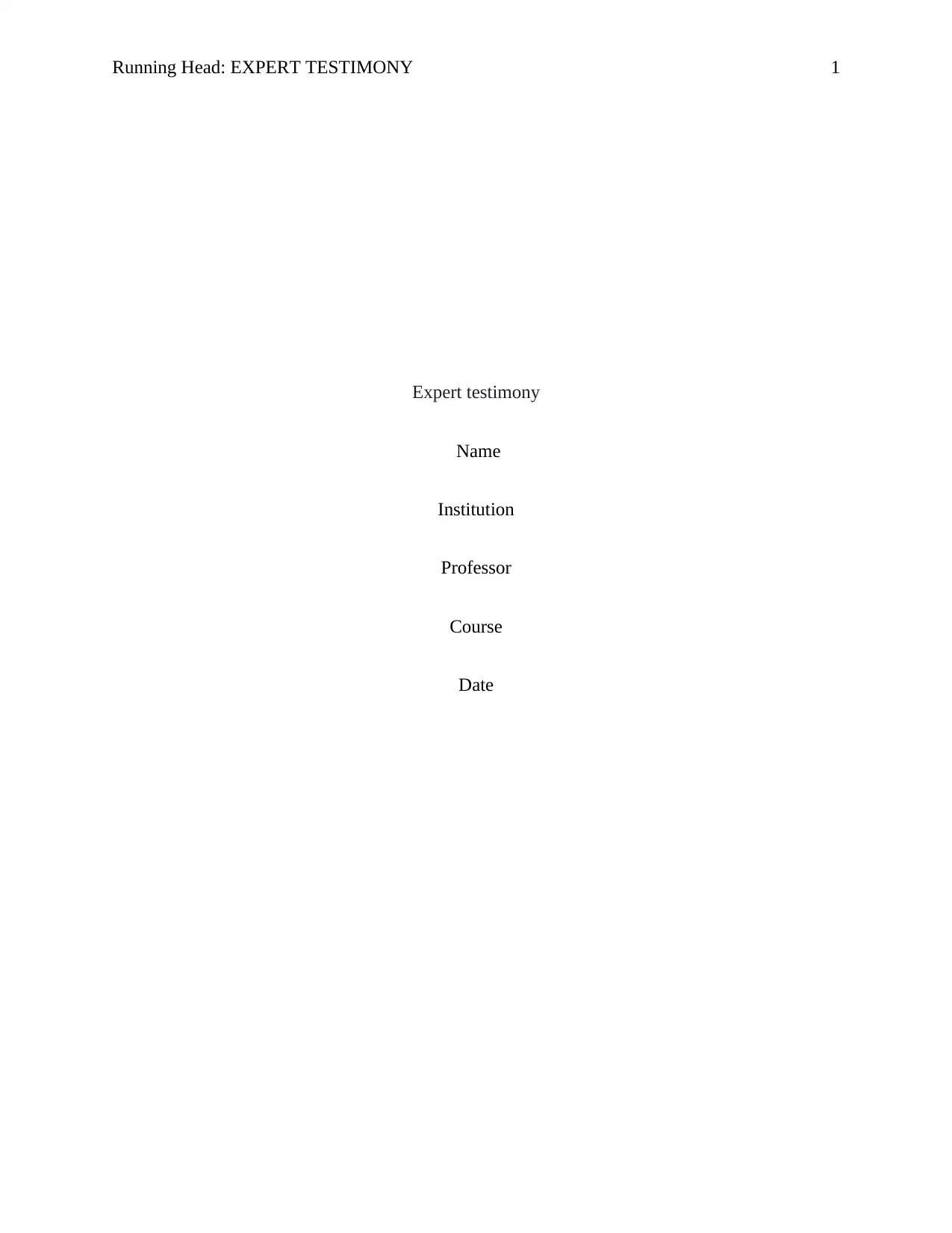
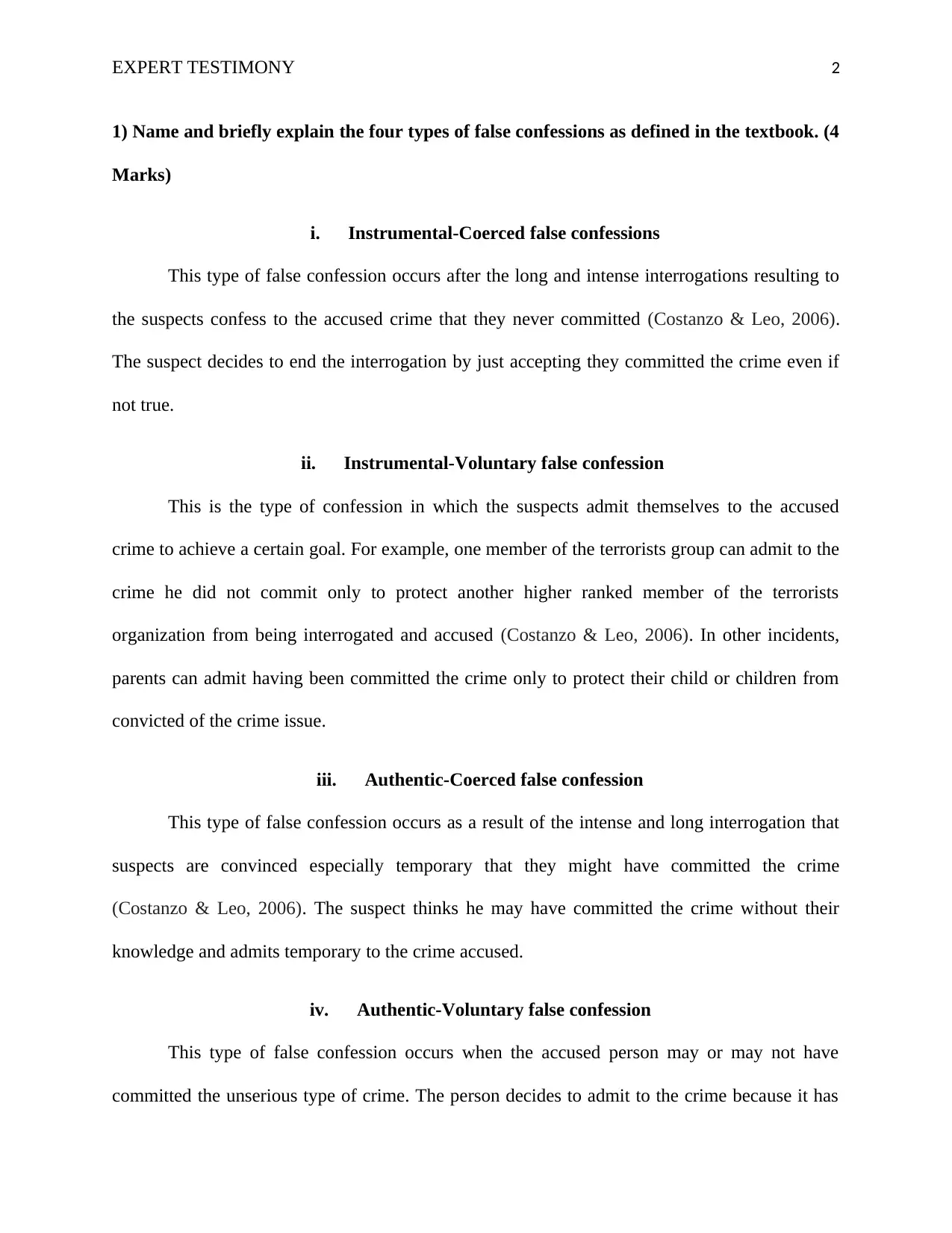
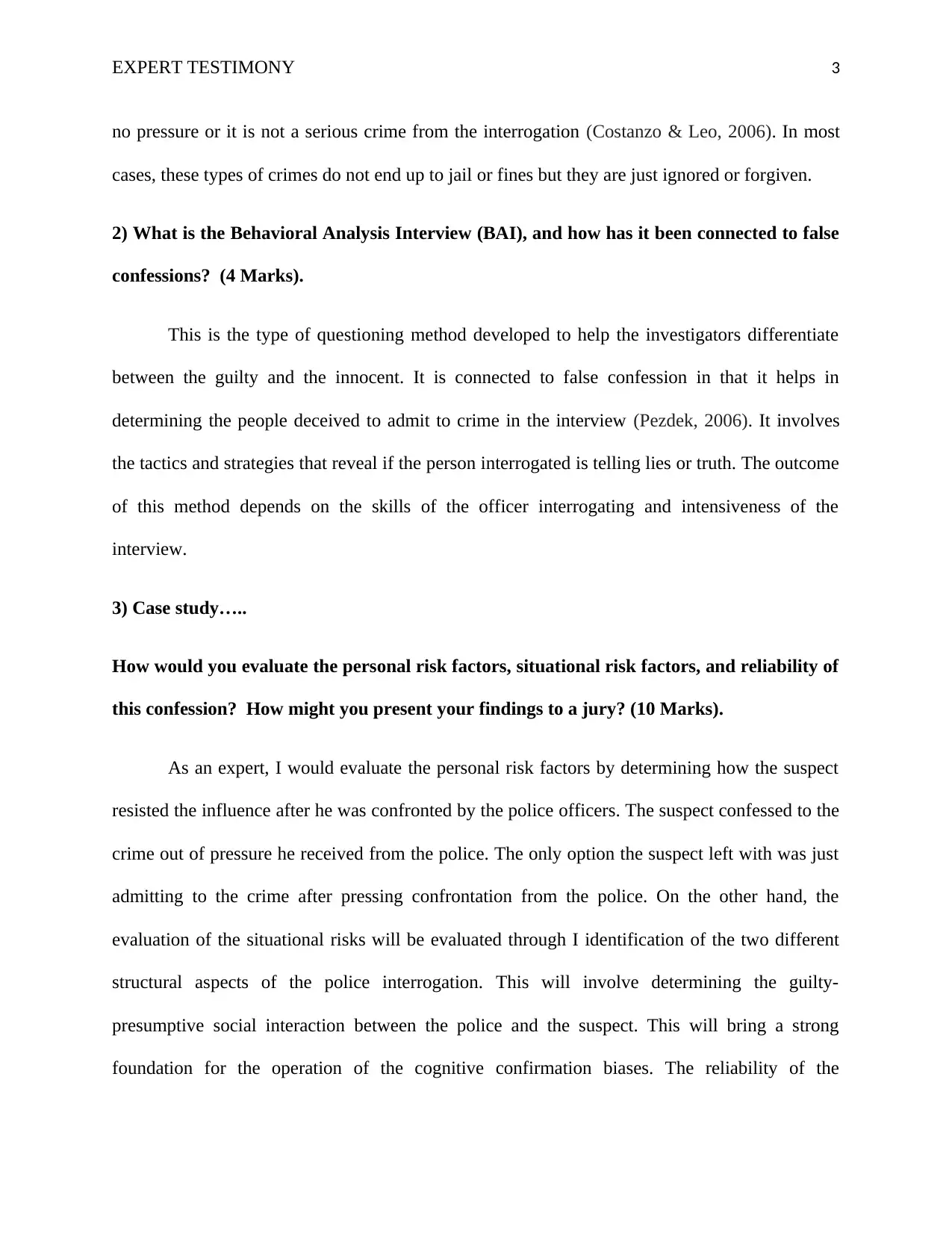

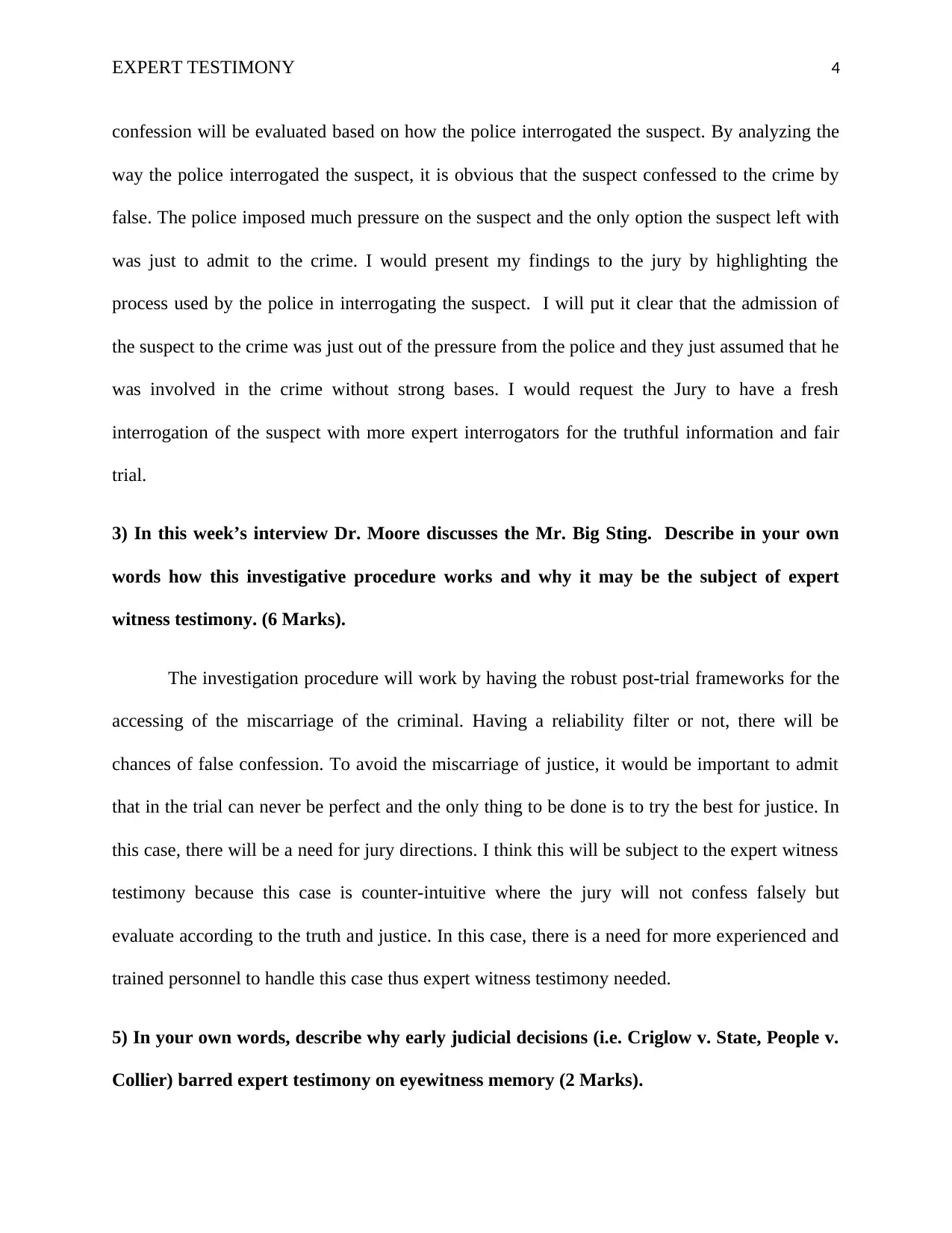
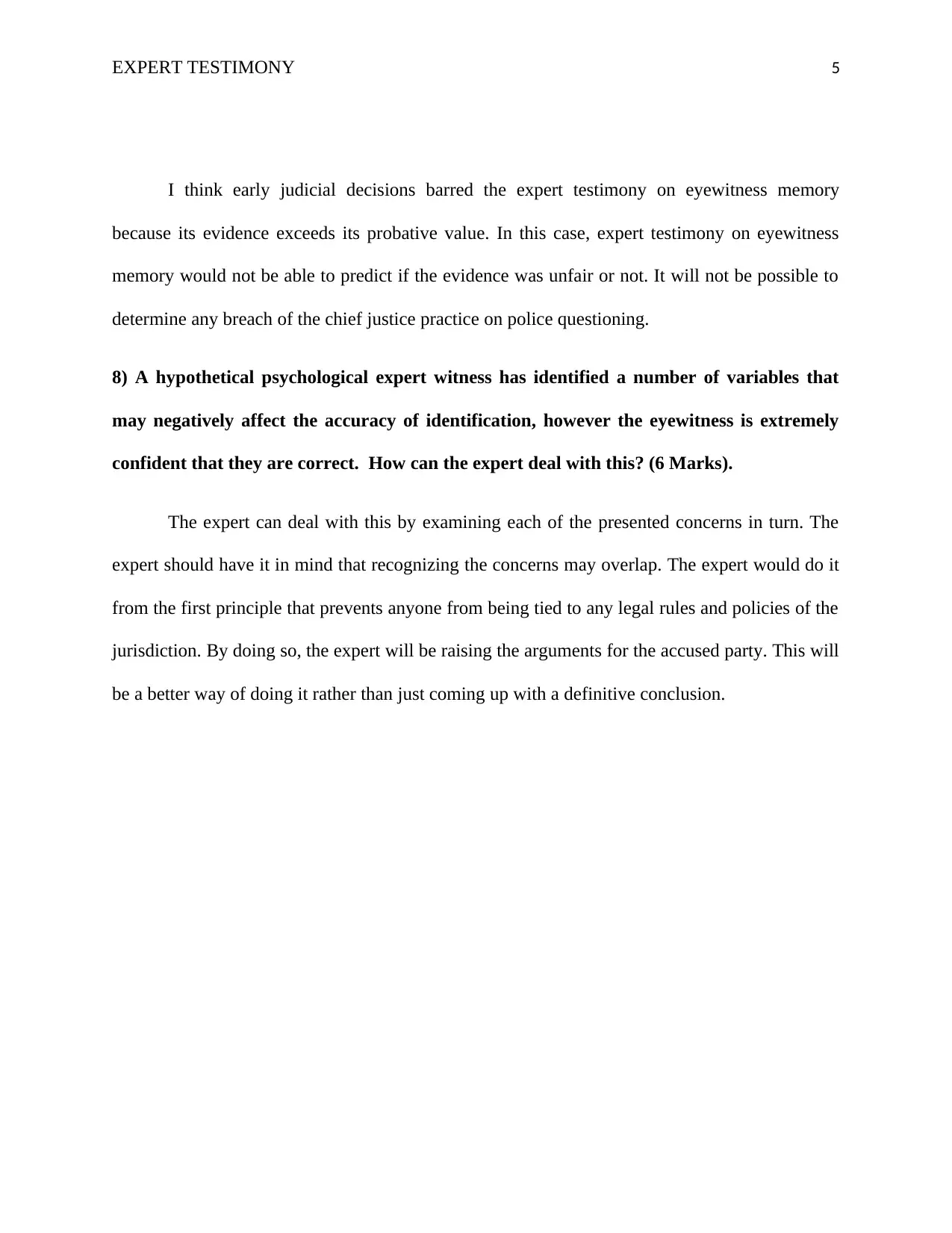
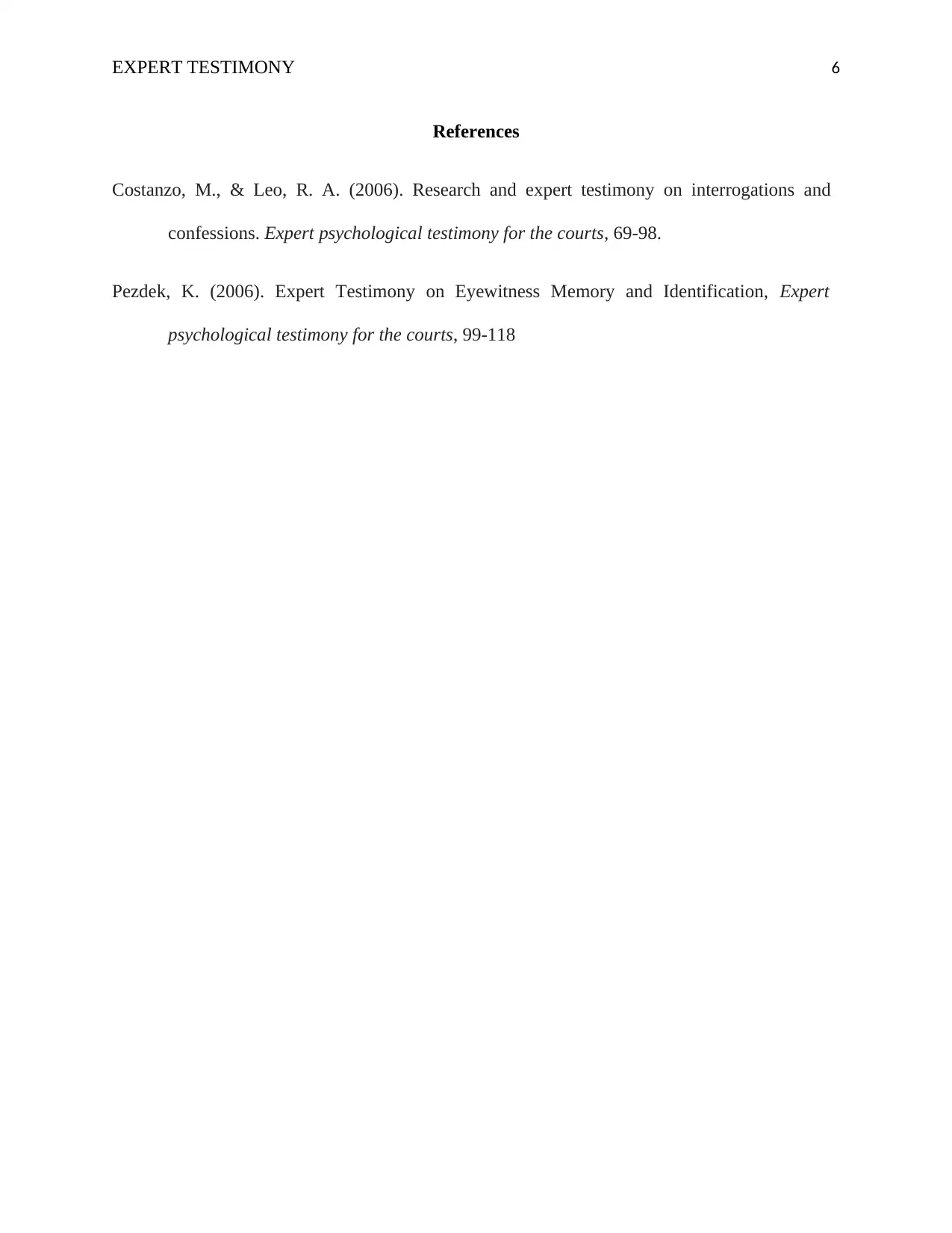
![[object Object]](/_next/static/media/star-bottom.7253800d.svg)